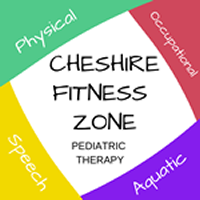Dr. John Rusin is a ‘hybrid strength coach’ and a sports performance physical therapist. He has a ton of experience working with clients, who range from professional athletes to ‘weekend warriors’. As the title suggests, Rusin’s main focus is in building strength but he also helps to prevent injuries and aid recovery.
Read on to find out more about his training, his ideas and his expert advice!
Q1. To start, could you please describe for our readers, a little about who you are, and what you do in your own words?
My name is Dr. John Rusin, and I am a hybrid strength coach sports performance physical therapist who works with a myriad of different types of clients and athletes including professional athletes and weekend warriors. I have treated and trained athletes from all the major professional American sports, including 10 Olympic medallists in my career. In the management of my clients, I work hard to blend my skills in manual therapy, corrective exercise, and retraining movement patterns with the foundations of human movement and strength and conditioning development in a single session. Bridging the gap between performance training and physical therapy is what I do!
Q2. Your focus is on strength athletes, can you tell us a little about how you go about training for strength versus fitness or weight loss?
Many of the athletes I work with come to be to prevent injuries from happening in the first place while obviously trying to enhance on field performance. My programming that I have developed over the past decade is always evolving, but looks very similar for performance athletes as it does for the average fitness client. I focus on the six foundational movement patterns which are the hip hinge, squat, lunge, upper body push, upper body pull and core braced loaded carry and their abilities to execute these at a high level under load and condition. Many times, the diets based on sport specific training and skill work will be the differentiating factor between an athlete and an average fitness client. When you are on the field for multiple hours a day in addition to the gym, fuelling is key. To the same point, when weight loss or fat loss is the goal, you can’t out train a bad diet so the diet strategy must be locked in and match the training regimen and goals.
Q3. What does your own current fitness plan look like at the moment?
I am currently training with my wife five to seven times a week with a strong emphasis on strength and hypertrophy development. I am currently training on my own programming, which is my 12-Week Functional Hypertrophy Training Program that is my best work ever, and has really produced some amazing results for both muscle gain and fat loss. I also focus in on maintaining and improving those six foundational movement patterns I spoke to above, with an emphasis on getting stronger and leaner in the process. Workouts last anywhere from 60-90 minutes and we implement conditioning and cardiovascular based work into this program as well.
Q4. How did you get into a career in strength and fitness? What first attracted you to the industry?
Like many coaches, I myself was a Division-1 athlete and took my curiosity and love for training to the next level with education in Exercise Science, then ultimately into a Doctor of Physical Therapy Program. Training and attaining goals in the weight room that are objective in nature, and doing so with hard work and a linear correlation with what you put in and what you get out really continues to draw me to strength and fitness. I love to work hard, but also the science and theory behind smart training and injury prevention.
Q5. If you could only give one piece of advice to readers wanting to improve their health and fitness, what would it be?
Get systemized with your training, and have a plan going in. Not only a plan for that day’s workout, but a plan that will take you towards your goals every single day that you step foot in the gym. Training on a 12-week program, or with a coach makes the biggest difference I see. Not only are you locked into what you need to be doing on a daily basis to achieve your goals, but you have accountability and a springboard for ideas and interaction with a coach. And remember, this day and age, the coach doesn’t need to be an in person personal trainer. If you can execute the basic lifts with precision, online training provides the greatest value of all as it’s fractions of the price of a personal trainer, and provides you to literally work with any coach in the industry!
Q6. Finally, do you have any upcoming projects you’d like to share?
Big program I just launched the New Year with is my 12-Week Functional Hypertrophy Training Program.
We’d like to thank Dr Rusin for taking the time to answer our questions and hope that you learned something from his advice. Remember: systemize and stay accountable!



